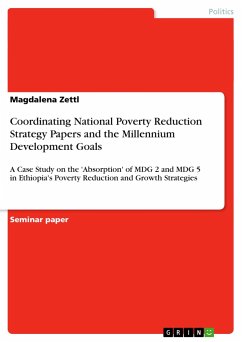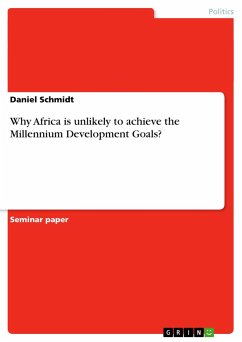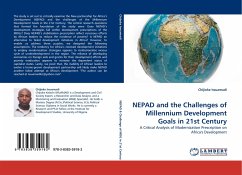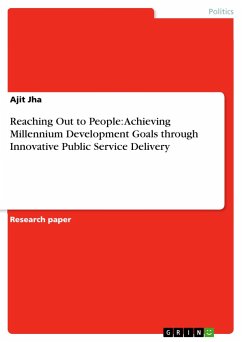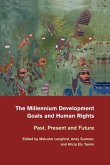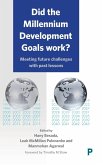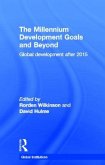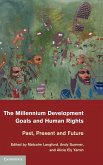Seminar paper from the year 2012 in the subject Politics - International Politics - Topic: International Organisations, grade: 1.4, , language: English, abstract: Poverty reduction strategy papers (PRSPs) are claimed to be the 'crucial link' between the Millennium Development Goals (MDGs) on the global level and poverty reduction and growth strategies on the nation level as PRSPs incorporate more and more MDG goals and indicators. Ethiopia, a low-income country in Sub-Saharan Africa, is used as a case study as it has not only made significant advancements in terms of achieving the MDG goals since 2000 but has also made extensive use of PRSPs. Ethiopia has already issued its third generation of PRSPs (2002; 2006; 20011), including an interim PRSP in 2000. The essay analyzes how well MDG 2 'Primary Universal Education' and MDG 5 'Maternal Health' have been absorbed into Ethiopia's PRSPs. Findings confirm that PRSPs are a crucial means to implement MDGs within national policies and programs. Moreover, the study hints to how different processes of MDG incorporation into PRSPs influence the achievement of the respective MDGs on the national level. PRSPs have to be given considerable importance in the post- 2015 agenda; however, a revision of PRSPs is urgently needed to compensate PRSP's criticism and its lack in adhering to some of its most crucial principles, which play a significant role in the post 2015 agenda.

